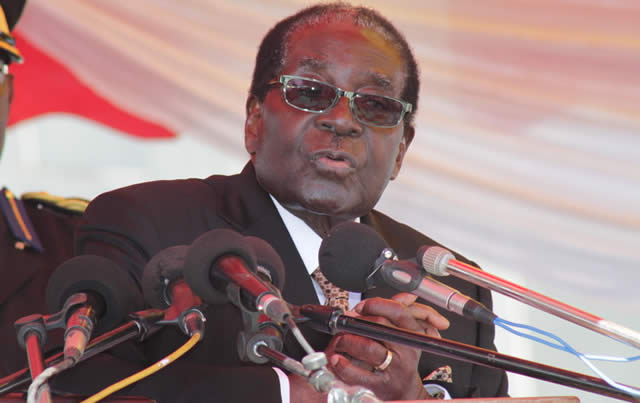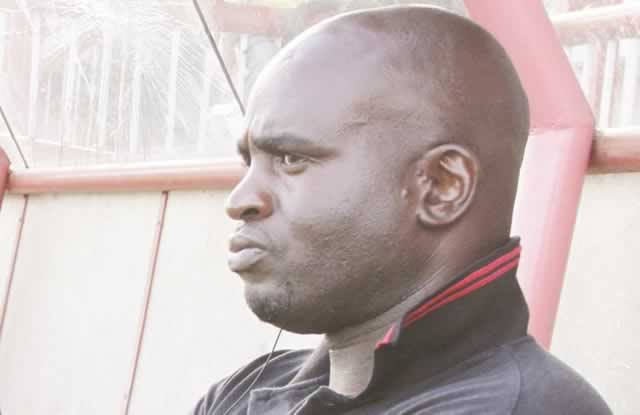Schoolgirls: 100 days since kidnapping


People attend a rally calling on the government to rescue the schoolgirls kidnapped by extremist Islamist Boko Haram sect from the Chibok Government Secondary School in Abuja, Nigeria
John Alechenu
It is a hundred and one days since the extremist Islamist Boko Haram sect abducted over 200 schoolgirls from Chibok Government Girls’ Secondary School, Chibok, Borno State. The schoolgirls’ horrendous ordeal into the little-known Sambisa forest has been greeted with global condemnation.
The victims, whose ages range between 12 and 18 years, were abducted from their school on the night of April 14, 2014, sparking local and international outrage. Initial reports said 85 students were abducted during the attack. A few days later, the military released a statement claiming that more than 100 of 129 abducted girls had been freed.
The statement was later retracted, and on April 21, parents of some of the victims said 234 girls were missing. A number of the students escaped from the terrorists in two batches.
According to the police, approximately 276 children were abducted out of which, 53 had escaped as of May 2. Yet, other reports claim that a total of 329 girls were snatched, 53 escaped and that 276 were still missing. Although there are conflicting reports about the exact number of girls still missing, one fact remains; there are over one hundred girls still in captivity.
In the beginning, government officials at the highest level expressed doubts about the genuineness of information that the schoolgirls were missing. This was confirmed by former President Olusegun Obasanjo, in an interview with Bloomberg television.
Obasanjo said: “On the kidnapping or abduction, the President did not believe that those girls were abducted for almost 18 days. If the President got the information within 12 hours of the act and he reacted immediately, I believe those girls would have been rescued within 24 hours, maximum, 48 hours. Don’t forget, they are almost 300 girls. The logistics of moving them is something (delay) the sect would have encountered. Unfortunately, the President had doubts; ‘Is this true? Is this a ploy by some people who don’t want me to be President again? Who is doing this?’ I think that was an unfortunate aspect of the whole exercise or situation.”
The schoolgirls, whose only offence was to dare to acquire education to better their lot, were forcibly taken by hardened terrorists masquerading as jihadists. The psychological trauma they have been forced to go through is better imagined than experienced. Concerns about their general state of health, especially those who have attained the age of puberty, is also a source of concern. Reports that they are being gang-raped on a daily basis have increased the anguish of their parents and guardians. As at the last count, no fewer than 11 parents have died as a result of distress they suffered over the abduction of their daughters. It may not, therefore, come as a surprise that in spite of the Federal Government’s continuing assurances that it is on top of the degenerating security situation, not many Nigerians appear convinced. This is even more so at a time when the death toll from attacks traceable to the terrorist group have been on the increase.
Borno State, like its neighbouring Yobe and Adamawa states, has been under emergency rule long before this daring abduction. An obviously distraught Borno State Governor, Kashim Shettima, expressed sadness that the insurgents were better armed and motivated than the nation’s armed forces. His views drew angry responses from Jonathan and the top echelon of the Nigerian military. The President had during a Presidential media chat — soon afterwards, said he could withdraw the military from the affected states for one month to see what happens.
The blame game between state and federal authorities after the incident has become an issue of global concern and a source of national embarrassment.
Some have argued that if the various security arrangements government claimed it had put in place were effective, the brazen abduction of the Chibok girls would not have gone unchallenged by security operatives.
The President’s wife, Patience, who also had doubts about the incident, convened her own fact-finding meeting with some of those believed to have explanations to make.
In spite of the controversy surrounding her intervention, it brought to light the fact that there was some communication between the West African Examination Council, the Federal Ministry of Education and the state government over the issue of security. It also revealed the fact that there was no security presence around the school area before the abduction.
As a result of an alleged slow response by the Jonathan-led Federal Government, prominent Nigerians such as a former Minister of Education, Oby Ezekwesili, and several personalities and groups began the #Bring back our girls’ campaign. The movement has attracted millions of followers on social media as well as protest marches within and outside Nigeria. It has attracted global support from the rich and powerful across racial divides — touching on the essence of our humanity.
Some world leaders who have lent support to the movement include the United Nations Secretary General, Ban Ki Moon and the First Lady of the United States, Michelle Obama, to mention just a few. Members of the Nigerian chapter of the movement have had a running battle with government officials as well as security forces over the motive for their continued protests in Abuja, the federal capital.
Minister of Information and National Orientation, Labaran Maku, like some of his counterparts in the Federal Executive Council, has accused members of the group as doing the bidding of those opposed to the Jonathan administration but Ezekwesili has vehemently denied this accusation.
The controversial Commissioner of Police in charge of the Federal Capital Territory, Joseph Mbu, went a step father by banning more protests citing security concerns. He was, however, overruled by the Inspector General of Police, Mohammed Abubakar.
A rival group believed to be made up of government’s supporters named Release Our Girls Now, sprang up to challenge the Bring Back Our Girls campaigners. This resulted in a clash as some supporters of the Release Our Girls group which had a member of the House of Representatives, Beni Lar, as champion, allegedly attacked the Bring Back Our Girls Now group at the Unity Fountain, Abuja.
No one appears to have taken up the offer of the N50m cash reward offered by the Nigeria Police Force for anybody with useful information about the location of the abducted Chibok schoolgirls.
Although belated, government’s acceptance of assistance from the international community to secure the release of the girls is perhaps an indication of the near helplessness of the situation. The Chief of Defence Staff, Air Chief Marshal Alex Badeh, had informed a gathering of the pro-government #Release Our Girls Now group that security forces had located the girls. He explained that his men were being cautious not to seek to free them by force to avoid collateral damage. Unfortunately, two months after his pronouncements, the waiting game has continued unabated.
The question agitating the minds of Nigerians is: for how long must we wait for concrete results which will ensure that the girls are brought back safe and alive? If and when the girls are released, are there measures in place to end the insurgency and prevent the insurgents from going elsewhere to abduct other girls?
The Chibok abduction saga has, without doubt, exposed the glaring inadequacies of government at various tiers across the country. The release of the girls is a task that must be done with the sincerity of purpose and the urgency it deserves.
Any administrative obstacle towards securing the release of the girls has the potential of causing further harm to the health and standing of all concerned as well as an injury to the nation’s reputation. The ongoing protests within and outside the country is a demonstration of the level of concern being shown by all men and women of goodwill the world over.
It is being speculated that the President has yet to declare his desire to seek for a second term in office because no significant headway has been made towards the release of the girls.
The way the Jonathan-led government handles this issue will to a large extent determine his fate and that of his party should he decide to seek re-election in 2015.
This opinion was taken from Punch.









Comments